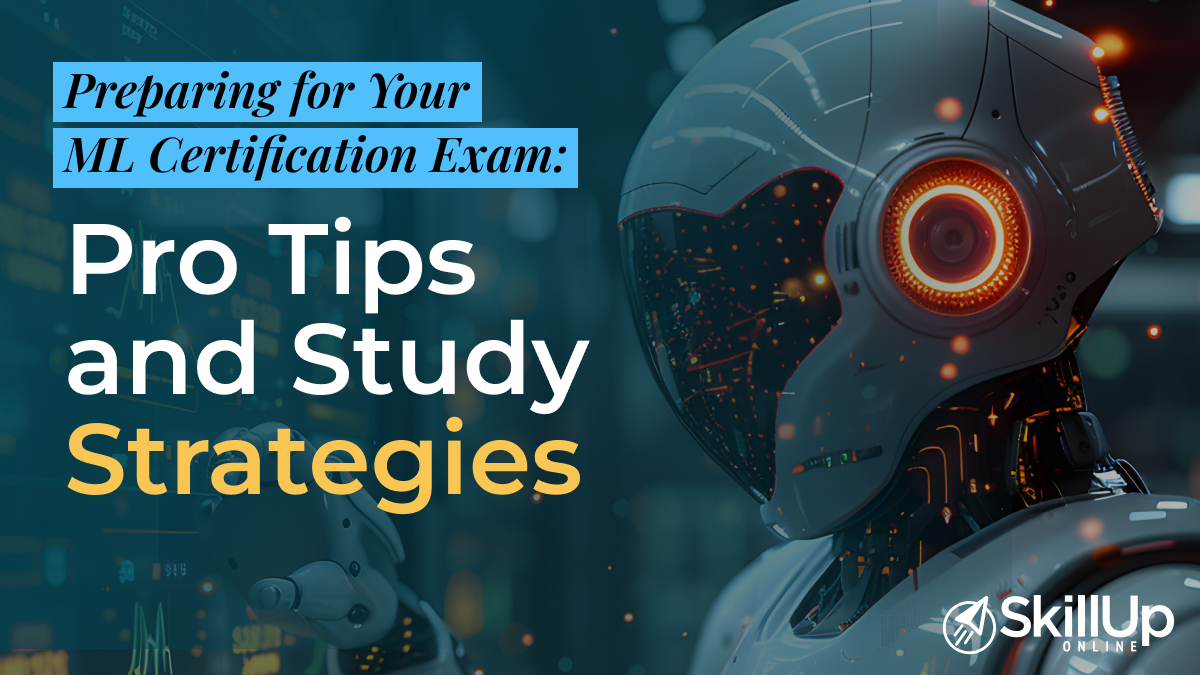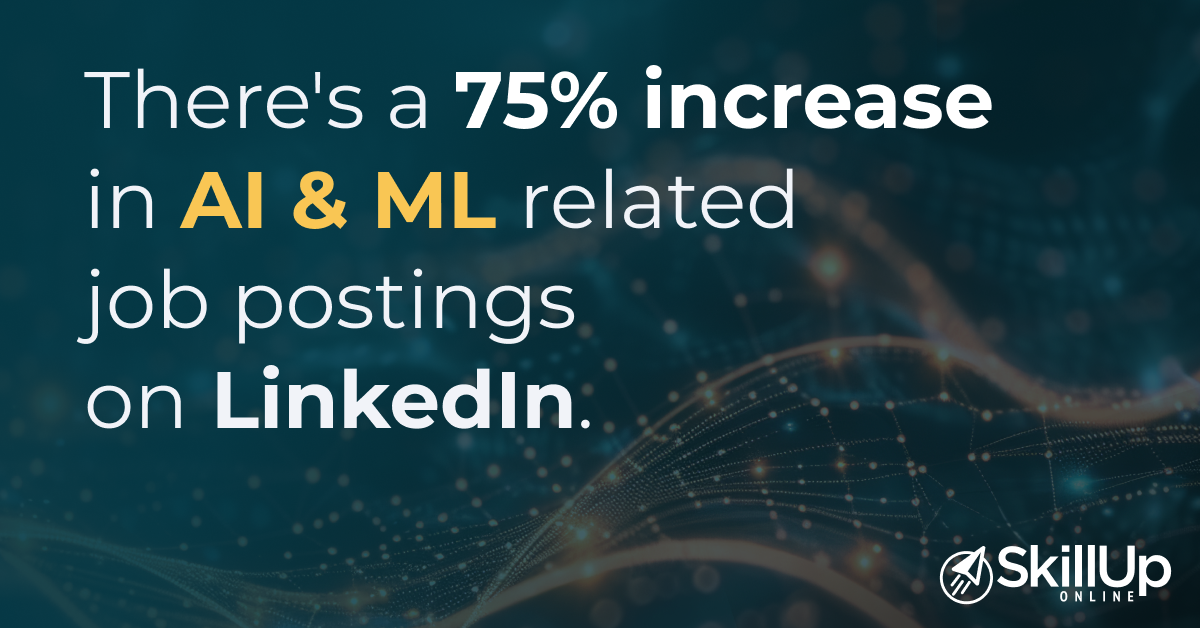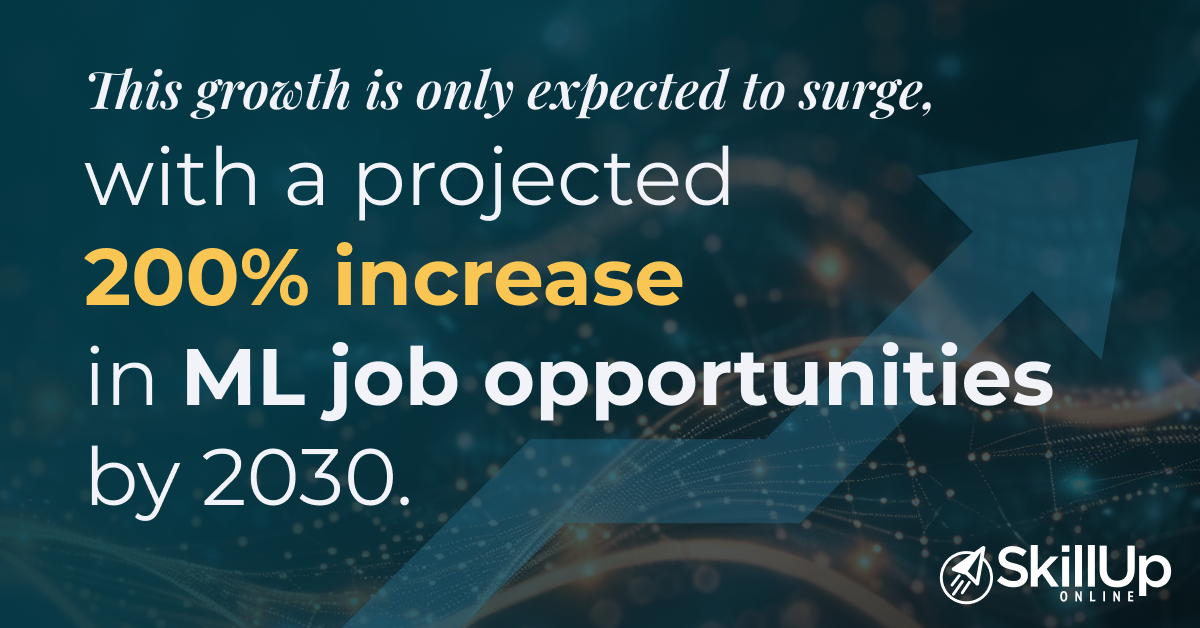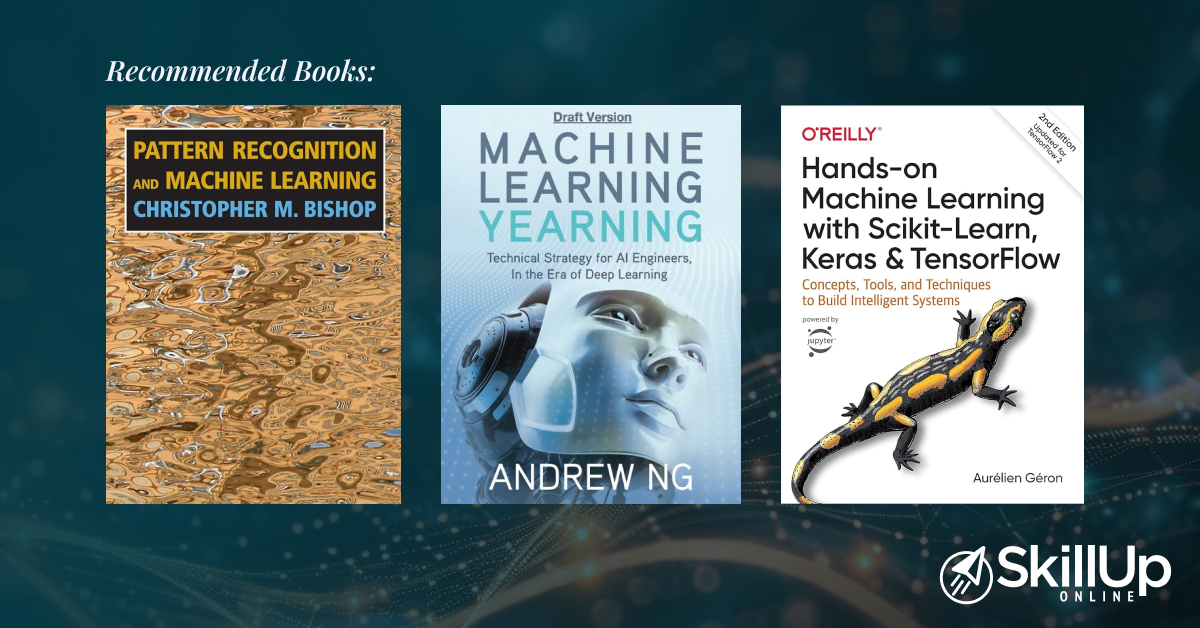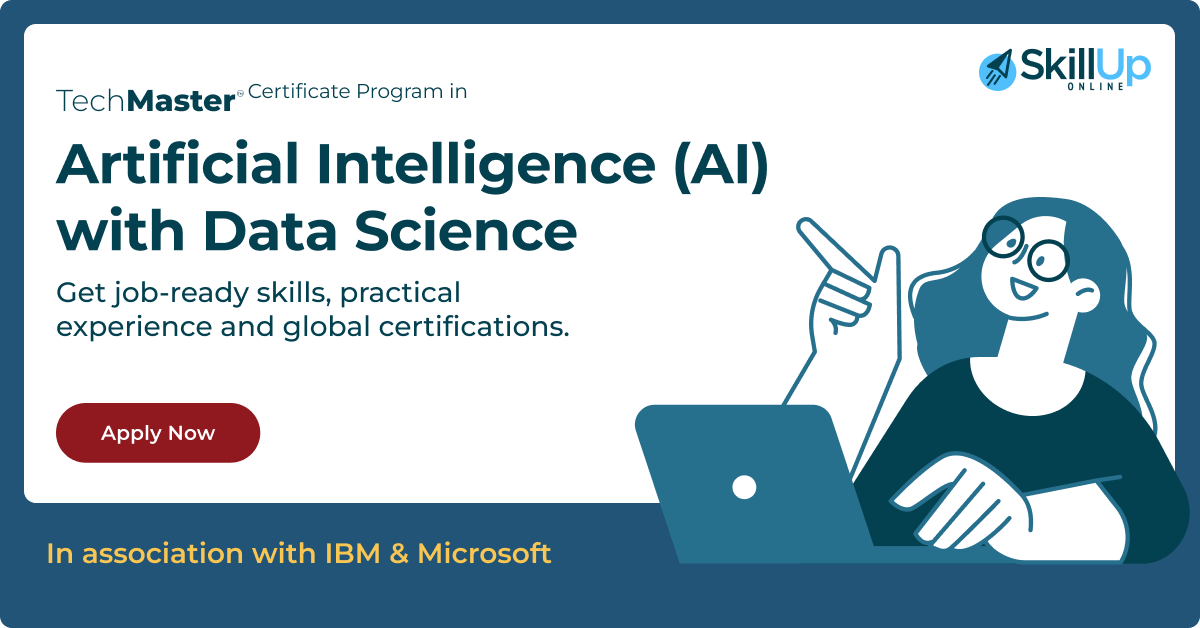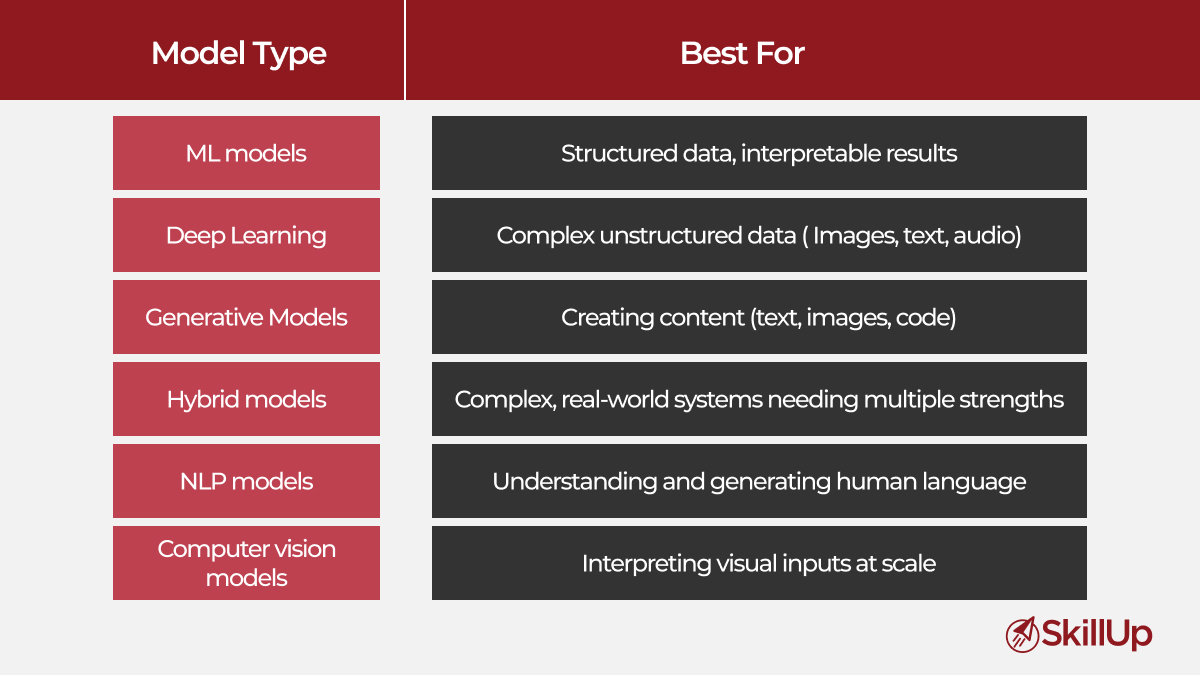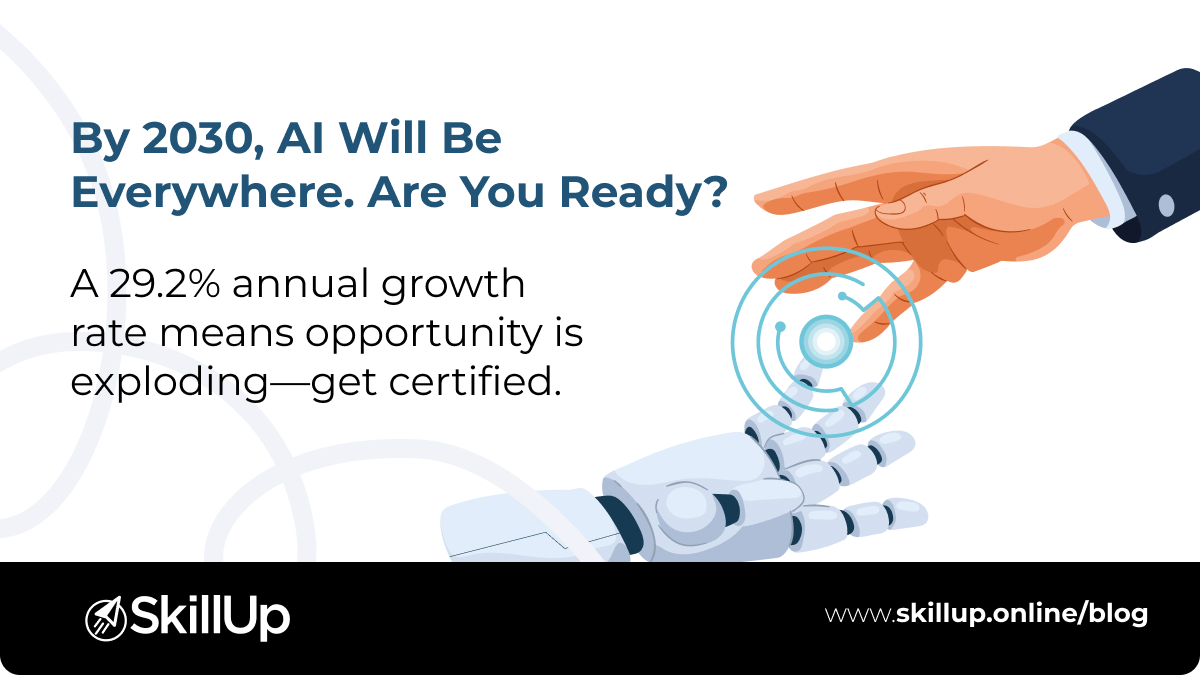In today’s digital economy, mastering machine learning (ML) not only works as an asset but is also a career accelerator.
For ambitious professionals aiming to secure a place at the forefront of this booming field, acquiring an ML certification is more than a milestone—it’s a strategic move to enhance expertise and credibility. However, one might find the road to certification fraught with challenges, from understanding the complex exam structure to crafting an effective study strategy. This blog aims to answer all the questions you might have regarding the certification process, offering you expert tips and proven strategies to navigate your journey with confidence and precision.
Understanding the Structure of ML Certification Exams
A thorough understanding of the structure of ML certification exams is crucial for effective preparation. These exams are designed to test a wide range of skills and knowledge in machine learning. Here’s a breakdown of the typical exam formats and content areas:
Exam Formats:
- Multiple-choice questions: Assess theoretical knowledge and understanding of ML concepts.
- Case studies: Test the application of ML in real-world scenarios.
- Practical projects: Evaluate hands-on skills in implementing ML solutions.
Key Areas of Focus and Weightage:
- Fundamental Concepts: Basics of machine learning, algorithms, and their applications.
- Advanced Topics: Neural networks, deep learning, and their practical implementations.
- Data Handling: Data preprocessing, cleaning, and effective data management techniques.
- Model Evaluation: Techniques to assess the performance and accuracy of ML models.
Understanding the format and key focus areas of these exams helps you effectively tailor your study approach to address both theoretical and practical aspects of machine learning.
Crafting an Effective Study Plan
Developing a well-structured study plan is fundamental to succeeding in ML certification exams. A personalized and balanced study schedule can make the difference between just passing and excelling. Here’s how to design an effective study plan:
- Assess Your Current Knowledge Level: Evaluate your understanding of ML concepts. This assessment will help you identify areas that require more focus.
- Set Realistic Goals: Determine your aim in each study session. Whether mastering a specific ML algorithm or understanding data preprocessing techniques, setting clear goals keeps you focused.
- Allocate Time Effectively: Divide your study time between theoretical learning and practical application. For instance, dedicate certain hours to reading and understanding ML concepts and others to implementing these concepts in projects or exercises.
- Include a Variety of Learning Resources: Utilize different materials like books, online courses (e.g., SkillUp Online’s ML courses), and tutorials to diversify your learning experience. This approach helps in grasping concepts from multiple perspectives.
- Regular Breaks and Revision: Ensure to include breaks in your schedule for better retention and to avoid burnout. Regularly revising previously covered topics is also crucial to keep the information fresh.
Selecting Learning Resources and Materials
Choosing the right learning resources and materials is a cornerstone of effective preparation for an ML certification exam. The breadth and quality of resources you engage with can significantly enhance your understanding and retention of ML concepts. Here’s a guide to selecting the best study materials:
Recommended Books:
Foundational Textbooks:
- Pattern Recognition and Machine Learning by Christopher M. Bishop: Ideal for beginners, this book offers a comprehensive introduction to the fields of pattern recognition and machine learning.
- Machine Learning Yearning by Andrew Ng: This text helps readers understand the practical aspects of machine learning and how to make strategic decisions in developing AI projects.
Intermediate to Advanced Reading:
- Deep Learning by Ian Goodfellow, Yoshua Bengio, and Aaron Courville: This book is suited for those who have a good grasp of ML fundamentals and are looking to delve into the more technical aspects of deep learning.
- Hands-On Machine Learning with Scikit-Learn, Keras, and TensorFlow by Aurélien Géron: This guide provides practical instructions and hands-on projects that help solidify advanced machine learning techniques and theories.
Online Courses and Tutorials
Enroll in online courses that offer structured learning paths and hands-on projects. SkillUp Online, for instance, offers a range of courses designed to cater to different aspects of machine learning. Programs like the TechMaster Certificate Program in Artificial Intelligence with Machine Learning and IBM Applied AI Professional Certificate can be particularly beneficial.
Practical Exercises
Beyond theoretical learning, practical exercises are vital. Look for resources that include real-life case studies, projects, and exercises. This hands-on practice is crucial for understanding the real-world application of ML concepts.
Mock Tests and Practice Exams
Regularly taking practice exams and mock tests helps gauge your preparedness and identify areas that need more focus. They simulate the exam environment, making you more comfortable with the format and time constraints.
Here are three recommended sources for high-quality mock tests:
- Whizlabs: Known for their comprehensive practice exams across various certifications, Whizlabs offers specific mock tests for ML certifications that mimic the real exam scenarios. You can access their resources at Whizlabs ML Practice Tests.
- DataCamp: DataCamp provides practice exams that focus on the skills and knowledge required for ML certifications. These are great for reinforcing learning through hands-on, interactive problem-solving. Explore their offerings at DataCamp Practice Sections.
- Kaggle: Kaggle not only hosts competitions but also offers a range of practice problems that can be akin to taking mock tests. These problems help build and test your ML skills in a practical, competitive environment. Visit Kaggle at Kaggle Competitions.
Community Resources
Engaging with online forums, study groups, and community resources is invaluable for anyone preparing for an ML certification exam. These platforms offer a wealth of information, provide answers to your queries, and offer the moral support needed during your study journey. Here are several active communities where you can connect with peers and experts Stack Overflow, GitHub and Data Science Central.
By diversifying your learning resources and incorporating theoretical and practical learning, you enhance your chances of succeeding in the ML certification exam.
Prioritizing Hands-On Labs and Projects
While preparing for an ML certification exam, giving priority to hands-on experience through labs and projects is essential. This practical application not only reinforces theoretical knowledge but also hones practical skills. Here’s the importance of this approach and how to incorporate it into your study:
- Role of Practical Application: Engaging in hands-on labs and projects allows learners to apply ML concepts in real scenarios, providing a deeper understanding of the subject matter.
- Selecting Relevant Projects: It’s beneficial to choose projects that cover a broad spectrum of ML topics, from data preprocessing to advanced applications like natural language processing.
- Integrating Projects into Study Plan: Allocating time for practical projects within your study schedule ensures a balanced approach between theory and practice.
- Building a Portfolio: Documenting these projects in a portfolio showcases your practical skills and understanding, which is valuable for your professional development.
- Leveraging Online Resources: Platforms that offer courses incorporating practical projects. For instance, Deep Learning with TensorFlow and AI for Everyone: Master the Basics courses provide hands-on experience integral to mastering ML.
By emphasizing practical application in your ML exam preparation, you gain a comprehensive understanding of machine learning, greatly enhancing your confidence and readiness for the exam.
Optimizing Note-Making Techniques
Effective note-making is a critical skill in preparing for an ML certification exam. It helps condense vast amounts of information into manageable, understandable chunks. Here’s how to optimize your note-taking techniques:
- Identifying Key Information: Focus on capturing essential concepts, formulas, and algorithms. This approach aids in distilling complex topics into core elements.
- Organizing Notes Effectively: Structure your notes in a way that makes sense for you. Well-organized notes enhance recall and understanding, whether chronological, by topic, or in a mind map format.
- Utilizing Digital Tools: Taking advantage of digital note-taking tools is a smart strategy to streamline your study process while preparing for an ML certification exam. These tools offer features like searchability, tagging, and easy editing, which can significantly enhance the efficiency and effectiveness of your review sessions. Here are a few of the best tools for this purpose Evernote, Microsoft OneNote, Notion, Google Keep.
- Summarizing and Paraphrasing: Instead of verbatim note-making, summarize and paraphrase the information. This practice improves understanding and ensures active engagement with the material.
- Regular Review and Consolidation: Regularly review and consolidate your notes. This repetition solidifies the knowledge and prepares you for the breadth of topics covered in ML exams.
Leveraging Collaborative Learning and Study Groups
Collaborative learning and joining study groups can significantly enhance your ML certification exam preparation. Here’s the importance of these resources and how to utilize them effectively:
- Benefits of Study Groups: Study groups provide a platform for shared learning where members can offer diverse perspectives and insights on ML topics. This collaborative environment facilitates a deeper understanding and comprehensive coverage of exam material.
- Peer Support and Knowledge Sharing: Being part of a study group allows for mutual support and exchange of ideas. It’s a space where you can clarify doubts, share resources, and learn from the experiences of others.
- Finding Suitable Groups: Look for study groups that align with your learning objectives. Online platforms like Reddit’s r/Machine Learning, Stack Overflow, and LinkedIn groups offer vibrant communities such as Machine Learning Community (Moderated) for ML enthusiasts.
- Active Participation: Actively discuss, answer questions, and contribute resources. Explaining concepts to others is a powerful way to reinforce your understanding.
- Utilizing Online Resources: Online forums and educational blogs are excellent supplements to your study. Platforms like Kaggle offer a wealth of resources for practical insights and community engagement. SkillUp Online’s blog, such as the How to Start Your AI Career article, can provide valuable insights and tips for ML learners.
Managing Exam Anxiety
Exam anxiety is a common challenge many learners face, and managing it is crucial for success in ML certification exams. Here are strategies to help overcome this obstacle:
- Understanding Exam Anxiety: Recognize that feeling anxious before a significant exam is normal. Understanding that it’s a common experience can help you feel less isolated and more in control.
- Preparation Is Key: Thorough preparation is the best defense against anxiety. Ensure you cover all exam topics comprehensively and use practice exams to familiarize yourself with the format and timing.
- Relaxation Techniques: Practice relaxation techniques such as deep breathing, meditation, or yoga. These can help calm your mind and reduce stress levels.
- Positive Visualization: Visualize success in your exam. Imagine yourself answering questions confidently and efficiently. This positive mental rehearsal can boost confidence.
- Healthy Lifestyle Choices: Maintain a healthy diet, get adequate sleep, and exercise regularly. These habits contribute to overall well-being and help in managing stress.
- Seek Support If Needed: If anxiety becomes overwhelming, don’t hesitate to seek support from mentors, peers, or professionals. Sharing your concerns can be incredibly relieving and helpful.
Remember, managing exam anxiety involves finding what works best for you and incorporating those strategies into your preparation routine. By doing so, you can approach your ML certification exam with confidence and clarity.
Regular Review and Adjustment of Your Study Plan
Adopting a flexible and reflective study plan is crucial for effective ML certification exam preparation. Implementing regular reviews and adjustments can significantly enhance your learning process. Here’s how to do it:
- Assessing Your Progress: Regularly evaluate how well you understand different ML topics. Use this assessment to identify areas needing more focus. Online quizzes and practice exams can be valuable tools for this assessment.
- Adjusting Strategies as Needed: Be ready to modify your study plan based on your progress assessment. If certain areas are challenging, allocate more time to them. Conversely, spend less time on topics you’re confident about.
- Incorporating Feedback: Utilize feedback from practice exams and study groups to refine your study plan. Engaging in forums like Stack Overflow or Kaggle can provide valuable insights and alternative learning approaches.
- Seeking Additional Support: If certain concepts prove challenging during your study, it’s important not to hesitate in seeking further assistance. To gain a more comprehensive understanding, consider exploring additional educational resources available online. Many platforms offer in-depth materials and tutorials that can help clarify complex machine learning topics and enhance your learning experience.
- Balancing Study and Rest: Ensure your study plan includes sufficient rest. Avoid overstudying, as it can lead to burnout. Balance is key to maintaining both mental and physical health.
Regularly reviewing and adjusting your study plan ensures it remains tailored to your evolving learning needs, leading to more effective preparation for your ML certification exam.
As you approach the end of your journey in preparing for your ML certification exam, it’s important to acknowledge and celebrate the effort and dedication you’ve put into this process. Your journey has equipped you with in-depth knowledge and practical skills in machine learning, setting a strong foundation for your future endeavors in this dynamic field.
If you would like to know more about how you can build the necessary machine learning skills and get started, contact our Learner Support Team at [email protected]. They will be more than happy to guide you on your next steps.
SkillUp Online
